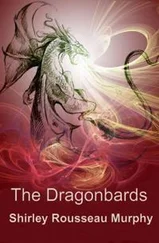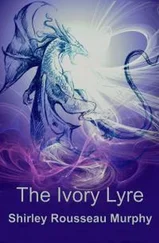Ширли Мерфи - The Grass Tower
Здесь есть возможность читать онлайн «Ширли Мерфи - The Grass Tower» весь текст электронной книги совершенно бесплатно (целиком полную версию без сокращений). В некоторых случаях можно слушать аудио, скачать через торрент в формате fb2 и присутствует краткое содержание. Жанр: Фэнтези, на английском языке. Описание произведения, (предисловие) а так же отзывы посетителей доступны на портале библиотеки ЛибКат.
- Название:The Grass Tower
- Автор:
- Жанр:
- Год:неизвестен
- ISBN:нет данных
- Рейтинг книги:5 / 5. Голосов: 1
-
Избранное:Добавить в избранное
- Отзывы:
-
Ваша оценка:
- 100
- 1
- 2
- 3
- 4
- 5
The Grass Tower: краткое содержание, описание и аннотация
Предлагаем к чтению аннотацию, описание, краткое содержание или предисловие (зависит от того, что написал сам автор книги «The Grass Tower»). Если вы не нашли необходимую информацию о книге — напишите в комментариях, мы постараемся отыскать её.
The Grass Tower — читать онлайн бесплатно полную книгу (весь текст) целиком
Ниже представлен текст книги, разбитый по страницам. Система сохранения места последней прочитанной страницы, позволяет с удобством читать онлайн бесплатно книгу «The Grass Tower», без необходимости каждый раз заново искать на чём Вы остановились. Поставьте закладку, и сможете в любой момент перейти на страницу, на которой закончили чтение.
Интервал:
Закладка:
Chapter 1
The village was set in a nitch between the cypress-dark hills on one side, and the white, lonely dunes. Beyond the dunes the empty sea stretched, and all was roofed over with the luminous bowl of the sky, which seemed to block out the rest of the world that might exist beyond the village. On a spring day, as now, the sky was high and blue, but it could lay in low, leaden with the weight of clouds, or thick with fog. The village was a cluster of people as tightly packed together as the houses and shops were packed, as if they cowered away from the dark hills and the lonely, empty dunes; all around the village there was the emptiness of hills and dunes, and the sea wind brought the sand over the streets at night as if it would bury the very houses and the three blocks of shops. Bethany loved the dunes and the loneliness.
But now she stood with Colin staring into the old store, the wind whipping her long red hair sharply across her face. A cascade of dry eucalyptus leaves blew scuttling down the street and whirled around her ankles like something alive. She glanced irritably up at Colin —he was completely taken up with what was going on beyond the dirty glass. This store, with its gray, peeling paint, was the only neglected building in the three blocks of neat little shops.
Sometimes she felt as if nothing existed in the world beyond the village, as if even the small fishing harbor to the north, and the scattered lumbering camps and little cattle ranches were in a distant place, that San Francisco, which was so close, was in another world entirely.
She turned back to the window and crowded closer to Colin, putting him between her and the wind, and peered through the smeared circle she had made on the dirty glass. The store had always been empty, as long as she could remember. The interior was as mysterious as a cave, its ancient broken counters piled together in the middle, and the pea green walls splotched with squares of lavender where display cases had been wrenched away. The floor was strewn with old bottles, rags, and jagged pieces of wood. Beside her, Colin bent his lanky frame clumsily to scratch his ankle, and when he turned to look at her there was a smear of dust across his forehead and on the tip of his nose; the wind blew his pale hair across his eyes. He cupped his hands again and peered in at Aunt Selma.
“What’s she measuring the walls for? She looks,” Colin snickered, “like an inchworm going along like that with the tape.”
‘To cover them with black cloth. I heard her telling in the drygoods store: bolts and bolts of black cloth, and she’s going to paint spirit symbols on it with red paint,” Bethany said, wondering at Aunt Selma, trying to fathom what made her so determined and stubborn about transforming the old place, trying to understand in her own mind the desire that drove Aunt Selma.
“Will it be like a spiritualist’s then, do you think?”
“That’s not what she said; she said it only seems like that. You heard her. Ask Jack, here he comes—” Ask him if you dare, she thought. Jack came and stood beside her so she was cramped between the two boys, but warmer. He peered in casually, as if only to check on his mother’s progress, but his body was taut with anger. Bethany grinned unkindly at his discomfort and contemplated the store with increased interest. Then suddenly her mind opened to Jack’s so she was swept with the sour tide of his anger and resentment; she turned away from him and leaned her forehead against the dirty glass, feeling a dizziness of knowledge, an unwelcome touching of the private feelings of another that sickened her. It had come on her less as she grew older, and the thoughts did not come now in pictures and words as they had when she was little—that had stopped after her parents were killed—now she only felt it, Jack’s resentful anger at his mother’s new project inflicting itself on her mind almost as though she were the angry one.
When the feeling had faded at last, she breathed deeply, but she was angry down inside that Jack, that anyone, could do this to her, could make her feel emotions she did not want to feel. Well, Selma’s venture had caused enough talk in the village to make him angry, that was sure. Staid and hidebound as most of the village was, this idea of a spirit church was like a fire in its midst. Maybe Aunt Selma’s project would appeal more to the summer people, and to the tourists who would descend into the battered tourist cabins.
“I don’t see how she can make anything of that mess, let alone a—a church,” Colin said. He had a hard time saying church; the family didn’t think of Selma’s project as a church, but more as a den of sin and darkness. “Whatever made her—” Colin began uncertainly, then glanced at Jack and was still.
Colin and Jack and Bethany were cousins, their three mothers were sisters—well, Bethany’s adopted mother. She glanced at the boys’ reflections pressing into the glass; exact opposites, Jack and Colin. Jack was like his mother, black hair, and eyes the same, green as a cat’s.
Colin, on the other hand, was blotched looking, as if his dimensions were uncertain; Colin was often uncertain, in the way he looked at things, in the way he acted. Not positive like Jack. Peering again he repeated, “She can’t make any kind of church in there.” He seemed awfully interested, though, for all he disapproved.
“But she will,” Bethany said with conviction. She had observed Aunt Selma, had thought about what Aunt Selma did, long enough to be quite sure of that. She pulled up her socks and hitched her skirt around, trying to understand what made Selma the kind of person who always got what she wanted, who always got what she set her mind on. Selma saw them peering, and stared back in annoyance. The new sign, CHURCH OF THE ZAGDESHA—DOOR TO THE MIRROR SPIRIT —KEY TO THE UNITY OF THE SOUL, was black with red letters and had, painted below the words, two hands reaching toward each other not touching. It would hang over the street, but now it leaned against an inner wall beside a bucket. Ever since Dr. Claybelle had moved up from San Francisco and started dating Aunt Selma, things had gotten more and more interesting. Could they be having an affair, as Aunt Bett called it? Maybe that was one reason Jack was so angry. How could Claybelle be a minister? He was too fat and flashy and—cheap looking. How could Aunt Selma be attracted to him?
“What kind of symbols will she paint on it?” Colin asked. Jack glared then, with a black, hurt anger, upset at their lack of sympathy and understanding, and left them abruptly, going up the street with the wind pushing at him.
Bethany looked after him coolly. ‘Tentacles,” she said. “And triads, whatever they are. And—and runes, I think she said. And she’s going to put benches in rows for the services. For the seances, I mean,” she said with sudden conviction.
“Do you think it’s evil?” he asked as they started toward home.
“It’s—I guess I think it’s silly. I mean, how can anyone believe all that? I don’t see why Aunt Bett’s so mad, though. What harm can it do?”
She tried to imagine what it would be like, Aunt Selma holding seances there, but she could not. Aunt Selma and Aunt Bett were just as different as Jack and Colin were—Aunt Selma sleek and sophisticated and sure of herself, and Aunt Bett square and motherly and very often too concerned with things, too upset, too emotional—almost as uncertain as Colin sometimes. Still, Aunt Bett was definite about the Church of the Zagdesha; she said it was against God, that the family had enough problems without this kind of thing, that Selma ought to have outgrown this prurient interest long before now, that the whole town was talking, and that it was cheap and embarrassing and a bad influence on the children, meaning Colin and Jack and Bethany, and Colin’s older sister Marylou.
Читать дальшеИнтервал:
Закладка:
Похожие книги на «The Grass Tower»
Представляем Вашему вниманию похожие книги на «The Grass Tower» списком для выбора. Мы отобрали схожую по названию и смыслу литературу в надежде предоставить читателям больше вариантов отыскать новые, интересные, ещё непрочитанные произведения.
Обсуждение, отзывы о книге «The Grass Tower» и просто собственные мнения читателей. Оставьте ваши комментарии, напишите, что Вы думаете о произведении, его смысле или главных героях. Укажите что конкретно понравилось, а что нет, и почему Вы так считаете.
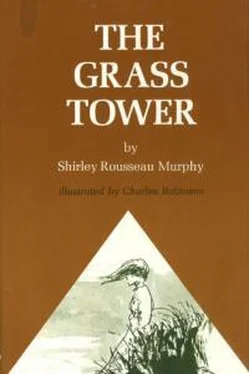
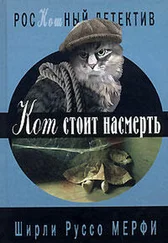
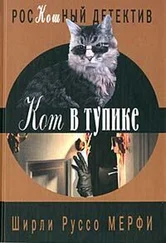
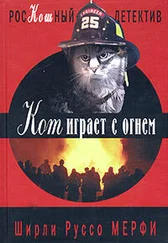

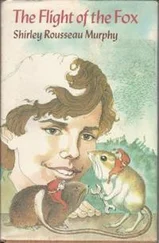

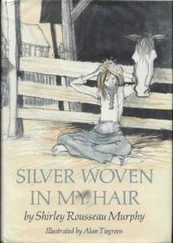
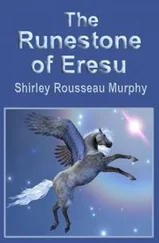
![Ширли Мерфи - The Shattered Stone [calibre]](/books/436059/shirli-merfi-the-shattered-stone-calibre-thumb.webp)
